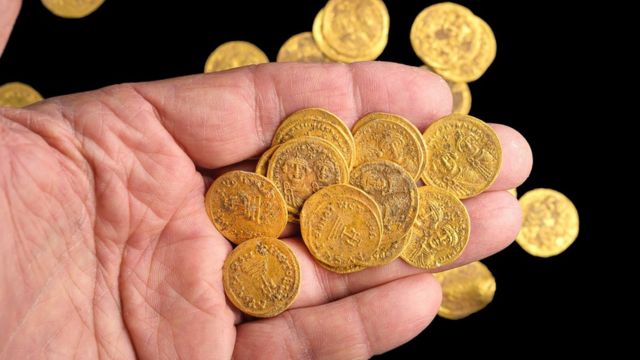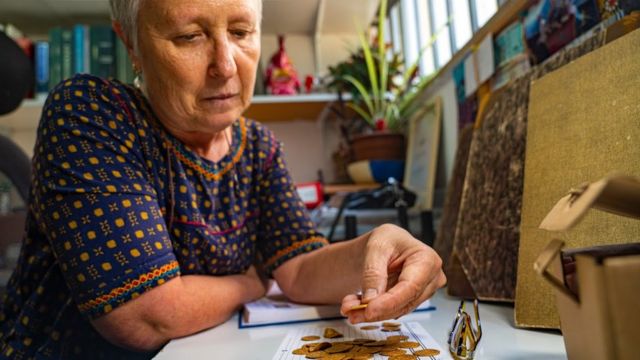Archaeologists in Israel have said that 44 pure gold coins hidden in a wall in a nature reserve date back to the 7th century. The total weight of this treasure is 170 grams and it is estimated that the place where it was found called Harman Stream (Banias) was conquered by Muslims in 635 AD. They say that these coins indicate the end of the Byzantine rule in the region. The Byzantine Empire, comprising the eastern half of the Roman Empire, lasted for over a thousand years.

"We can imagine that the owner of this treasure, hidden by fear of war, thought that one day he would return and claim his possession," said Yoyo Lehrer, director of the team that discovered it. In retrospect, we can say that fate did not favor him."
Dr. Gabriela Bioski says that these coins reveal the family of Emperor Herakles. Israeli officials say that in addition to gold coins, the excavations have also found remains of buildings, water pipes and channels, copper coins, and many other items from this residential area of the old city. Dr. Gabriela Bioski, a coin expert at the Israel Archeology Department, says that some of the coins date back to the reign of Emperor Phokas (602-610), but most date back to the reign of Emperor Herakles. In the Christian tradition, the place of Benias is of special importance and it is said that it is at this place that Jesus said to his apostle Peter that 'on this rock, I will build my church.'








No comments:
Post a Comment